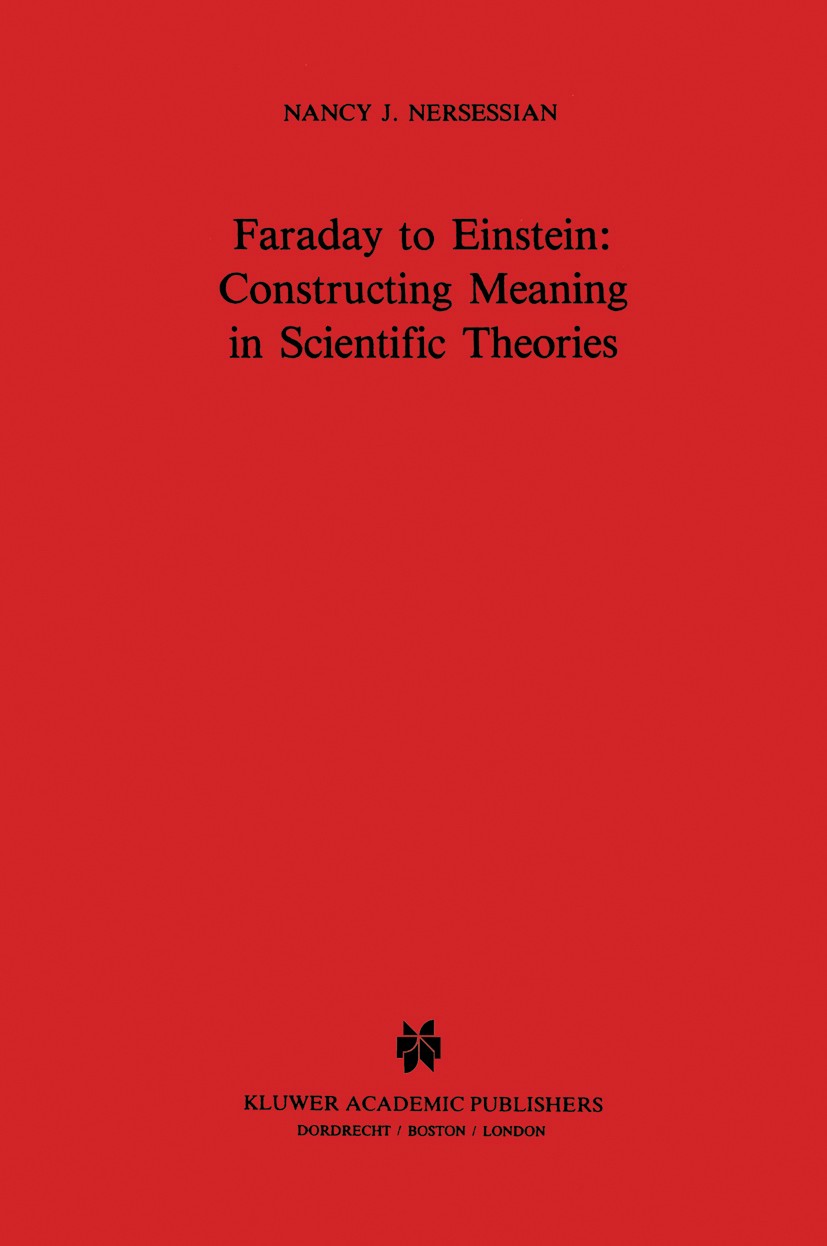| 书目名称 | Faraday to Einstein: Constructing Meaning in Scientific Theories | | 编辑 | Nancy J. Nersessian | | 视频video | http://file.papertrans.cn/342/341131/341131.mp4 | | 丛书名称 | Science and Philosophy | | 图书封面 |  | | 描述 | Einstein often expressed the sentiment that "the eternal mystery of the world is its comprehensibility," and that science is the means through which we comprehend it. However, nearly every one - including scientists - agrees that the concepts of modem physics are quite incomprehensible: They are both unintelligible to the educated lay-person and to the scientific community itself, where there is much dispute over the interpretation of even (and especially) the most basic concepts. There is, of course, almost universal agreement that modem science quite adequately accounts for and predicts events, i. e. , that its calculations work better than those of classical physics; yet the concepts of science are supposed to be descriptive of ‘the world‘ as well - they should enable us to comprehend it. So, it is asked, and needs tobe"asked: Has modem physics failed in an important respect? It failed with me as a physics student. I came to physics, as with most naIve students, out of a desire to know what the world is really like; in particular, to understand Einstein‘s conception of it. I thought I had grasped the concepts in classical mechanics, but with electrodynamics confusion set in and | | 出版日期 | Book 1984 | | 关键词 | Interpretation; quantum mechanics; science; scientific practice | | 版次 | 1 | | doi | https://doi.org/10.1007/978-94-009-6187-6 | | isbn_softcover | 978-0-7923-0950-5 | | isbn_ebook | 978-94-009-6187-6Series ISSN 0924-4697 | | issn_series | 0924-4697 | | copyright | Martinus Nijhoff Publishers, Dordrecht 1984 |
The information of publication is updating

|
|
 |Archiver|手机版|小黑屋|
派博传思国际
( 京公网安备110108008328)
GMT+8, 2026-1-12 21:30
|Archiver|手机版|小黑屋|
派博传思国际
( 京公网安备110108008328)
GMT+8, 2026-1-12 21:30


